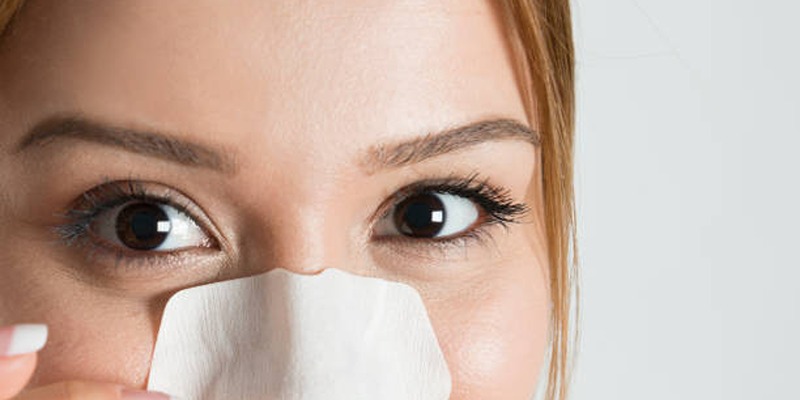Advertisement
Millions of individuals worldwide suffer from allergies with mild to severe symptoms. Many allergens, including pet dander and seasonal pollen, can cause sneezing, congestion, irritated eyes, and more. Conventional antihistamines often help with these symptoms. Unwanted side effects of these drugs, meanwhile, can include dry mouth, sleepiness, and vertigo.
Fortunately, natural antihistamines provide a milder, safer approach to controlling allergies. These natural substitutes assist in lowering allergy responses without producing the ill effects sometimes connected with synthetic medications. This article will discuss the greatest natural antihistamines and treatments to instantly halt allergies and offer comfort without depending on strong drugs.

Antihistamines are compounds meant to assist the body in blocking histamines. Chemicals released during an allergic reaction, histamines, cause the body to show symptoms, including inflammation, itching, and swelling. Your immune system creates histamines as a protection mechanism when you come into contact with an allergen. Antihistamines thus either stop the effects of the histamines or lower their production.
Benadryl and Zyrtec are among the conventional antihistamines that inhibit histamines to alleviate allergic reactions, including runny nose, sneezing, and itchy eyes. Many people, therefore, choose natural antihistamine substitutes as these can have negative effects, including drowsiness. Natural therapies provide relief without the sleepy side effects by helping the body's histamine output either be stabilized or released lessened. Certain natural antihistamines, such as vitamin C or quercetin, not only lessen the allergic reaction but also boost your immune system, therefore offering further advantages.
Nature provides several strong natural cures for allergy problems. Among the better choices are these:
Apples, onions, and berries, among other fruits and vegetables, contain quercetin, a potent antioxidant. Stabilizing mast cells, this natural flavonoid functions as a natural antihistamine. Quercetin lessens the degree of allergic reactions. It can also help with regular allergy symptoms and acts as an anti-inflammatory. You can control allergic flare-ups more successfully by including foods high in quercetin in your diet or by using supplements.
Still, another great natural antihistamine is vitamin C. Its immune-boosting powers are well-known. Did you also know, though, that it lowers body histamine levels? Vitamin C can reduce allergic reaction symptoms by bolstering the immune system and helping histamines to break down. Furthermore, plentiful in several fruits, including oranges, strawberries, and kiwi, is vitamin C. Daily use of foods high in vitamin C or a supplement throughout allergy season will help to avoid allergic reactions before they begin.
Butterbur is considered to be anti-inflammatory, and clinical research has demonstrated that it is as powerful as conventional antihistamine drugs. According to clinical research, butterbur may help reduce allergy symptoms, including sneezing, nasal congestion, and itchy eyes. Unlike many medication antihistamines, butterbur does not usually make one sleepy. To eliminate any possible pollutants, be sure you use PA-free butterbur supplements. Including these natural remedies in your allergy control schedule will assist in lessening symptoms without depending on modern drugs.

Long used to treat allergies, herbs provide a natural means of symptom relief. The following plants have shown success in controlling allergic responses:
Herbal medicines are a terrific complement to your allergy relief regimen. They can be used alone or in concert with other natural therapies for maximum potency.
Some foods naturally have antihistamine effects and can help to lessen allergic reactions. Including these into your diet will help you balance your allergy relief program:
While lifestyle adjustments can assist further in lowering allergy impact and exposure to allergens, natural therapies are good for easing symptoms. Here are some doable suggestions:
These lifestyle choices can boost the efficacy of natural antihistamines and further aid in minimizing allergy damage.
Although most natural antihistamines are harmless, one should exercise some care:
These steps will enable you to properly and safely use natural antihistamines to control your allergy symptoms.
For the management of allergies, natural antihistamines provide a better and safer substitute for modern drugs. Reducing histamine release and offering much-needed comfort are possibilities that include quercetin, vitamin C, and herbal therapies, including butterbur and nettle leaf. Foods high in turmeric and pineapple help the body control allergies even more. Natural antihistamines combined with good lifestyle choices will help you to significantly lower allergy symptoms without depending on strong drugs. Try these organic remedies to control your allergies and save the season from suffering.
Advertisement

By Isabella Moss/Nov 22, 2024

By Celia Kreitner/Oct 24, 2024

By Noa Ensign/Dec 30, 2024

By Martina Wlison/Dec 27, 2024

By Madison Evans/Nov 02, 2024

By Nancy Miller/Jan 17, 2025

By Sid Leonard/Jan 19, 2025

By Darnell Malan/Oct 20, 2024

By Sid Leonard/Apr 02, 2025

By Madison Evans/Nov 18, 2024

By Susan Kelly/Oct 22, 2024

By Celia Kreitner/Jan 07, 2025